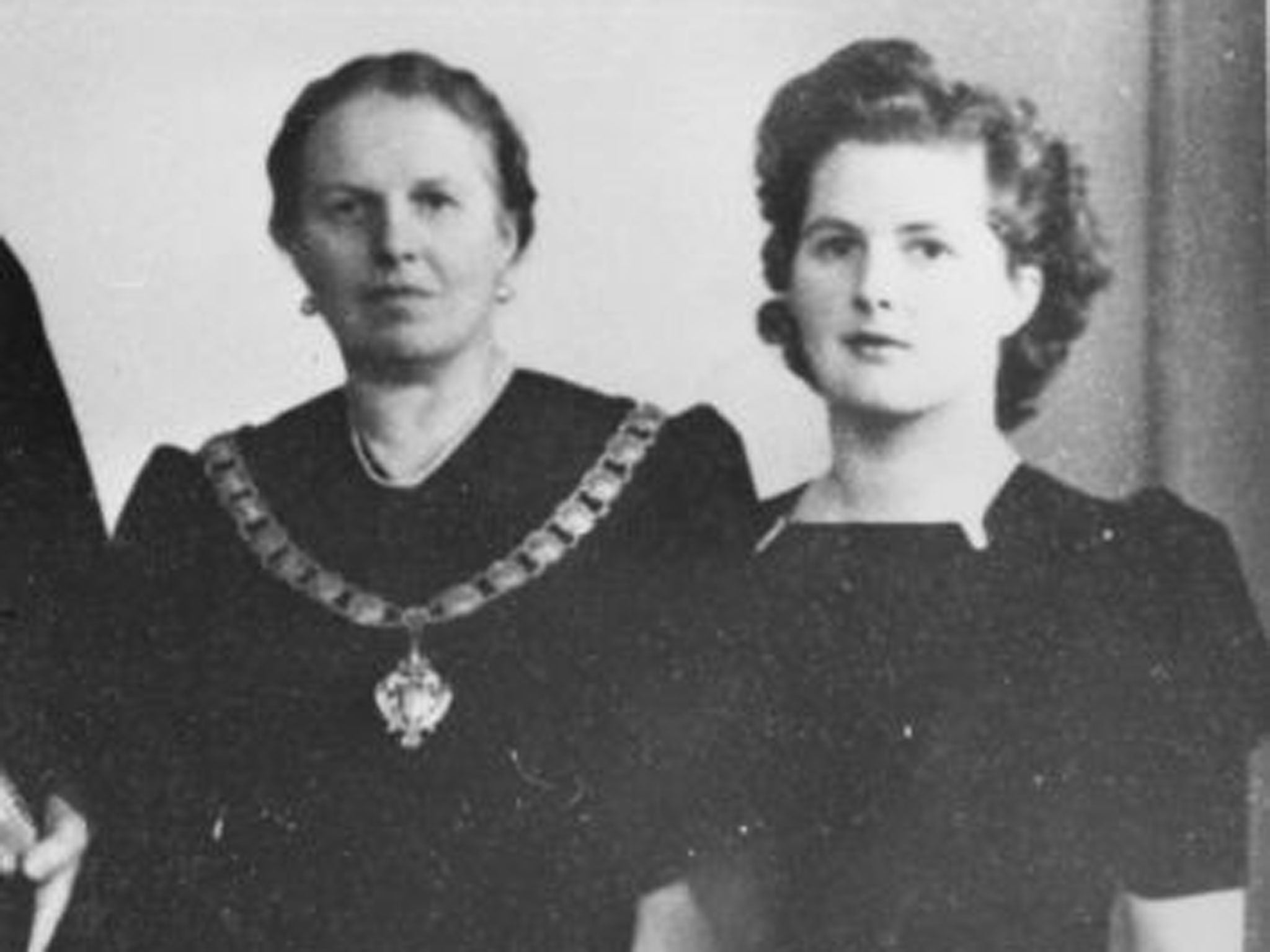The woman who brought up Margaret Thatcher
Thatcher’s mother is conspicuously absent from the Baroness’s memoirs

Your support helps us to tell the story
From reproductive rights to climate change to Big Tech, The Independent is on the ground when the story is developing. Whether it's investigating the financials of Elon Musk's pro-Trump PAC or producing our latest documentary, 'The A Word', which shines a light on the American women fighting for reproductive rights, we know how important it is to parse out the facts from the messaging.
At such a critical moment in US history, we need reporters on the ground. Your donation allows us to keep sending journalists to speak to both sides of the story.
The Independent is trusted by Americans across the entire political spectrum. And unlike many other quality news outlets, we choose not to lock Americans out of our reporting and analysis with paywalls. We believe quality journalism should be available to everyone, paid for by those who can afford it.
Your support makes all the difference.If the late Leo Abse, a flamboyant, sex-obsessed Labour MP, is to be believed, one of the most influential women of modern times was a publicity-shy 1930s housewife named Beatrice Roberts.
Hers is a name mysteriously absent from the first 862-page volume of Baroness Thatcher’s memoir, published 20 years ago. In that work, the former Prime Minister paid an extended tribute to her father, alderman Alfred Roberts, a Grantham shopkeeper, “both a practical man and a man of theory”, who opened his daughter’s eyes to the importance and complexity of the free market and world trade. But she never mentioned that she also had a mother. Similarly, her Who’s Who entry recorded her as being “d. of late Alfred Roberts, Grantham, Lincs” as if the good alderman had conceived and given birth to him by himself. Her biographer, John Campbell has pointed out that this was not unusual in 1960, when the newly elected MP originally submitted her Who’s Who entry: what was strange was that she never altered it, even after the omission became a source of public speculation and comment.
“I loved her dearly,” Lady Thatcher said of her mother in an interview in the Daily Express in 1961, “but after I was 15 we had nothing more to say to each other.”
Abse, who dabbled in psychoanalysis, wrote a provocative biography, Margaret, Daughter of Beatrice, in 1989, in which he examined the history of the 1980s through the prism of this relationship, or lack of a relationship, between mother and daughter. Lady Thatcher’s mother had failed to suckle the infant girl at the breast, he surmised, and that is what turned her into “Thatcher the Milk Snatcher”, who loathed the nanny state, while monetarism was the outward expression of the same infant’s “deprivation of defecatory pleasures”. Meanwhile, the Big Bang symbolised a suppressed desire for... oh, enough, enough.
It was a weird book that said more about its author than its subject. There may be a simpler explanation of the Roberts family dynamics than Abse’s Freudian obscurantism. Margaret had an older sister, Muriel, who avoided publicity all her life, and is also left out of the memoirs and Who’s Who.
Young siblings fight for adult attention. Muriel appears to have taken after their mother, and it is possible that the young Margaret felt unable to compete with this bond between mother and elder daughter, so sought her father’s attention instead. What is beyond doubt is that Margaret Robert was her father’s daughter. She had limitedless respect for this man who built up a small business and found time to take part in the political life of their home town. He was the role model for Margaret Thatcher, the politician.
By contrast, there is nothing in what we know about Beatrice Stephenson, who became Mrs Roberts, to suggest that she would be the mother of anyone prominent, let alone the extraordinary woman who will be given a grand funeral this Wednesday. She was born at 10 South Parade, Grantham on 24 August 1888, the daughter of Daniel Stephenson, who was employed for 35 years as a cloakroom attendant, and of Phoebe Crust, a factory machinist whose father was a farmer from a village near Boston, Lincolnshire.
Her father died in December 1916, and five months later, Beatrice married Alf Roberts.
Beatie, as Alf called her, had been strictly brought up by her mother not to waste money or be idle. She accompanied her husband and daughters to church twice every Sunday, and went to a sewing circle on Tuesdays. While baking for the family, she would turn out a few extra loaves to give to families who were temporarily down on their luck. “My mother was a good woman who was always intensely practical,” Lady Thatcher told Patricia Murray, who wrote a book about her just after she became Prime Minister. “She taught me how to cook and make bread, how to make my own clothes and how to decorate.”
But interviewed for television by Miriam Stoppard, in 1985, Lady Thatcher – who wept as she recounted how her father was bumped off Grantham Council – seemed to have real difficulty finding any more to say about this woman. Stoppard pressed her repeatedly to say something about her mother’s political views. All that Lady Thatcher could manage to say was “Mummy didn’t get involved in the arguments. She had probably gone out to the kitchen.”
It seems incredible that a woman who never ventured an opinion of her own, and would choose to potter about in the kitchen rather than take part in a political argument, could produce a daughter like Margaret Hilda. Lady Thatcher was many things, but she was never mummy’s girl.
Join our commenting forum
Join thought-provoking conversations, follow other Independent readers and see their replies
Comments